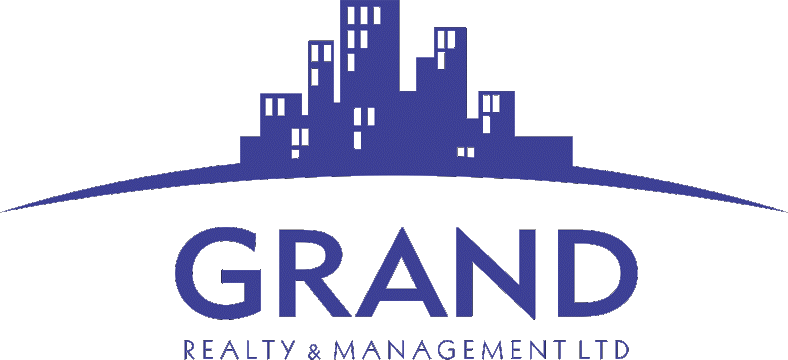Guide
Commercial Buying and Renting
Your Guide to Buying and Renting Commercial Space in Calgary
Whether you’re looking to buy or lease a commercial property in Calgary—be it office space, a retail storefront, a warehouse, or a mixed-use building—the process can seem daunting. Calgary’s commercial real estate market offers opportunities across all these property types, and this concise guide breaks down the key steps for both buying and renting in clear, practical terms. No prior real estate experience is needed – just follow these general steps tailored to the Calgary market.
Buying Commercial Property: Key Steps
- Determine Your Needs and Budget: Outline what you need (size, location, and type of space) and how much you can afford. If buying, speak with a lender to understand your financing options and get pre-approved for a commercial mortgage. Keep in mind commercial loans usually require a larger down payment (often around 20–30% of the purchase price). Plan for additional costs like legal fees, closing costs, property taxes, insurance, and any renovations.
- Engage Local Experts: Work with a Calgary commercial real estate broker and a real estate lawyer. An experienced broker provides market insight, helps find suitable properties, and negotiates deals. A lawyer will review contracts and ensure all paperwork is in order before you commit. Local experts understand Calgary’s market dynamics and regulations, which can save you time and money.
- Search for the Right Property: With your criteria in mind, start looking at listings (online databases or through your broker) for properties that meet your needs. Visit potential sites to evaluate their location, accessibility, and condition. Consider factors like customer traffic (for retail), transportation access (for industrial/warehouse), and overall neighborhood trends. Verify that the zoning and local bylaws allow your intended business use at the location – this is crucial in Calgary, where zoning can vary by area.
- Conduct Due Diligence: Once you identify a promising property, research it thoroughly. Hire a building inspector to check the property’s condition (structure, HVAC, etc.), and have your lawyer perform a title search to ensure there are no liens or legal issues. Confirm all necessary permits and zoning approvals are in place for your use. Evaluate the property’s financials too (e.g. any existing leases or income, if it’s an investment). Taking the time to do your homework will help you avoid expensive surprises.
- Make an Offer and Close the Deal: When you’re ready, have your broker help you draft a purchase offer with your price and any conditions (such as financing or inspection). Negotiate with the seller until you reach an agreement on price and terms. After the offer is accepted, your lawyer will help finalize the sale. This closing process in Alberta involves signing the final documents, transferring funds, and registering the property title. Once closed, arrange for insurance and any necessary City of Calgary business licenses or permits, then plan your move-in.
Renting (Leasing) Commercial Property: Key Steps
- Identify Space Requirements and Budget: Start by defining what you need from a rental space – square footage, layout, location, and any special features (parking, loading bays, etc.). Set a clear budget for rent and additional expenses. In commercial leases, tenants often pay not just base rent but also operating costs like maintenance, property tax, utilities, and insurance. Make sure you factor these into your budget so there are no surprises. Determine your desired lease term (length of lease) based on your business plan.
- Research Locations and Zoning: Explore Calgary neighborhoods to find a location that suits your business. For example, downtown and Beltline areas are popular for offices and retail, while industrial parks in the southeast or north cater to warehouse and manufacturing needs. Check local zoning regulations early to ensure your business type is allowed in the area you choose. A location that aligns with your customer base, employees, and delivery needs will set you up for success.
- Work with a Commercial Leasing Agent: Just as with buying, it helps to have a knowledgeable local agent when leasing. A commercial real estate broker familiar with Calgary can present properties that fit your criteria and budget, including spaces that may not be publicly advertised. Brokers also offer advice on market rental rates and can negotiate lease terms on your behalf. Their expertise, along with consulting a lawyer for lease review, will protect your interests as you navigate the leasing process.
- View and Evaluate Properties: Tour prospective spaces to see if they meet your needs. Consider the unit’s condition and whether any renovations or improvements would be required before you move in. Note practical details like parking availability, accessibility for customers and deliveries, and nearby amenities (restaurants, banks, etc.). Ensure the space’s infrastructure (e.g. HVAC, internet capability) supports your operations. If the property needs changes, discuss with the landlord whether they will provide a tenant improvement allowance to help cover renovation costs.
- Negotiate Lease Terms: Once you find a suitable space, be prepared to negotiate the lease. Almost everything is negotiable in a commercial lease—from the rent amount to the length of the term and renewal options. Clarify who pays for expenses such as maintenance, property taxes, and building insurance (these costs are often passed on to the tenant in Calgary leases). You can also negotiate for perks like a rent-free period at the start of the lease or the landlord covering certain improvements. Always have the lease agreement reviewed by your lawyer before signing to ensure the terms are fair and you understand your obligations.
- Finalize the Lease and Plan Your Move: After reaching an agreement, you’ll sign the lease and typically pay a security deposit or first and last months’ rent as required. Keep a copy of all documents. Before opening for business, make sure you obtain any City of Calgary business licenses or permits needed for your operations at that location. Coordinate your move-in date with any build-out or renovations the space needs. Allow sufficient time to outfit the space (install equipment, furniture, signage) and smoothly transition your business operations. With a bit of planning, you’ll be ready to launch in your new Calgary commercial space.
By following these steps and leveraging local expertise, buying or renting commercial property in Calgary becomes a manageable process. Always stay informed, ask questions, and take advantage of professional guidance to make sound real estate decisions that support your business goals. Good luck with your commercial property venture in Calgary!



